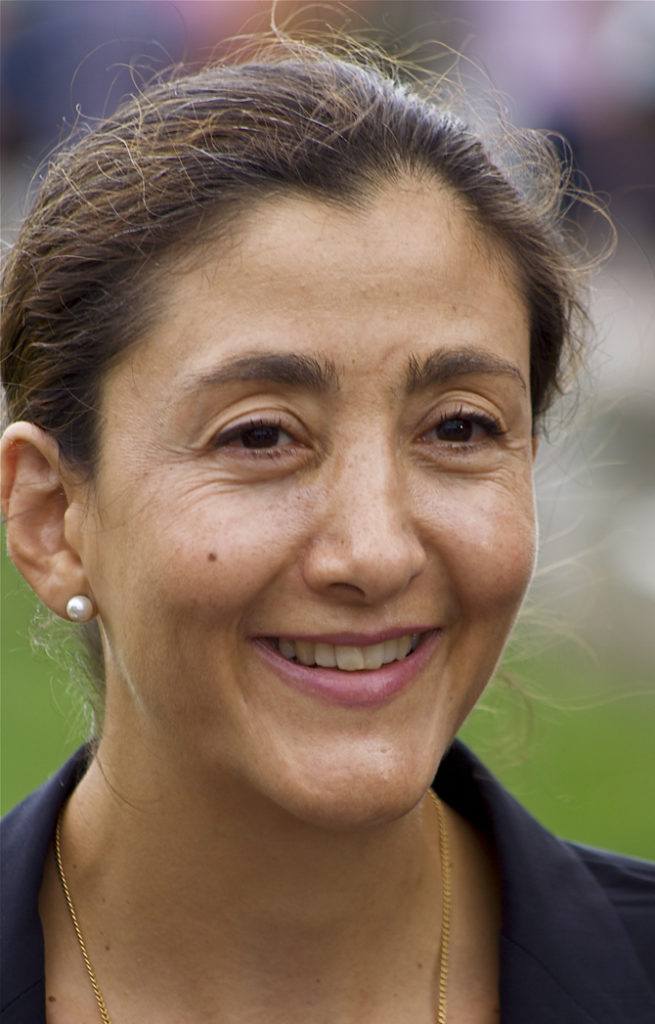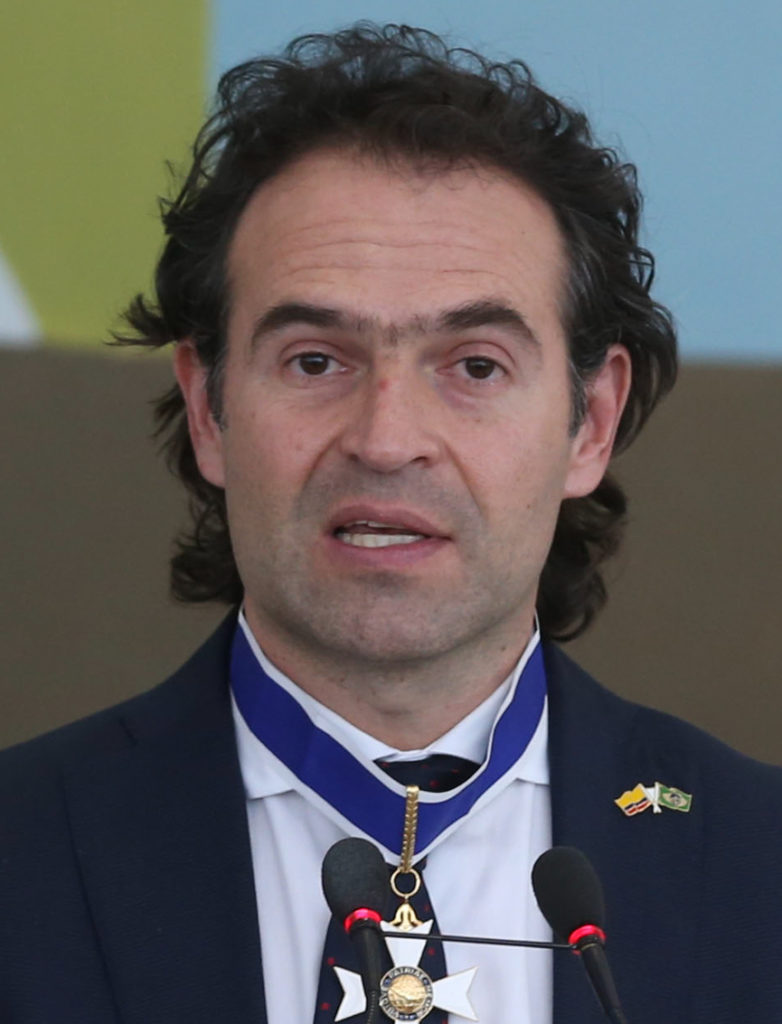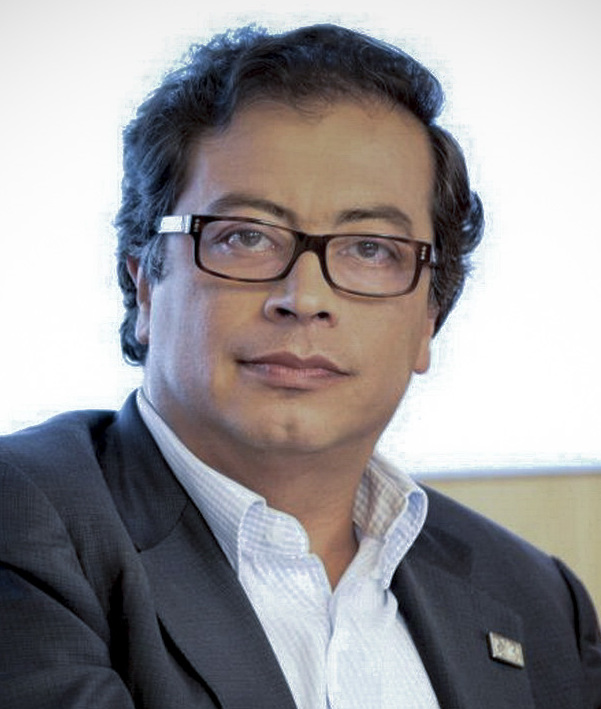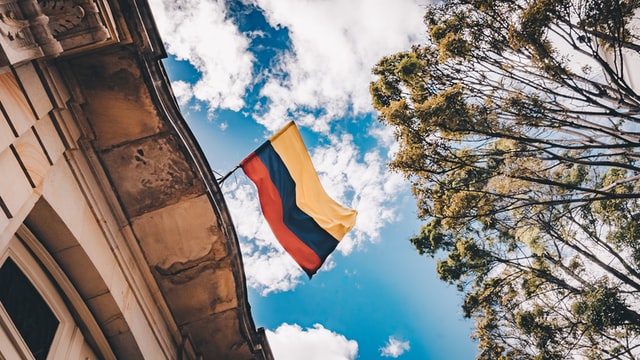Colombians will go to the polls on May 29, 2022, to elect a new president. President Iván Duque is ineligible for another term. Who will be the next president of Colombia?
How Does the Election System Work?
The President of Colombia is elected for a four-year term with a two-round system. Suppose no candidate receives a majority vote in the first round. In that case, a second-round is held between the top two candidates. The Vice President is also elected on the same ticket as the president. Candidates must be Colombian by birth and at least 30.
Colombians who are 18 or older have the right to vote. Citizens imprisoned in facilities can vote from the institutions determined by the National Civil Registry.
Who are the Presidential Candidates?
Ingrid Betancourt

Oxygen Green Party
Born: December 25, 1961
Íngrid Betancourt Pulecio is a Colombian-French politician, anti-corruption activist, and former hostage of the Revolutionary Armed Forces of Colombia (FARC). She was a senator in the Colombian Senate from 1994 to 2002. In May 2002, she was kidnapped by the FARC and was held captive until her rescue in July 2008.
Betancourt has been described as “an advocate for an end to the Colombian conflict and a more democratic society”. She has also been critical of the Duque administration.
She studied in France at the Institut d’Études Politiques de Paris before enrolling at the Harris Manchester College, Oxford, where she is a doctoral student in theology.
In 1989, Colombian presidential candidate Luis Carlos Galán was murdered while campaigning against drug trafficking. Betancourt’s mother was a fan of Galán and stood right next to him when he was killed. This event prompted Betancourt to return to Colombia in 1989.
Betancourt began working for the Ministry of Finance in 1990 and later at the Ministry of Foreign Trade. She resigned to run for office. Her first campaign distributed condoms with the words “People should protect themselves against corruption as they do against HIV”.
Betancourt was kidnapped by the Revolutionary Armed Forces of Colombia (FARC) in February 2002 while campaigning for the Colombian presidency as a Green candidate and was rescued six and a half years later on July 2, 2008.
Betancourt, along with 14 other hostages, was rescued during “Operation Jaque.” She decided to campaign in the “zone of dissension” after the military operation Tanatos and after the government declared the zone guerilla-free.
She is the most well-known female presidential candidate in the race. Colombia has never had a woman as president. She focuses on anti-corruption, reparations for victims of armed conflict, and environmental protection.
Sergio Fajardo

Hope Center, Citizen Agreement
Born: June 19th, 1956
Sergio Fajardo Valderrama is a Colombian mathematician and politician. He was Mayor of Medellín in 2003 and the Governor of Antioquia from 2012 to 2015.
Fajardo was born in Medellín in 1956 . Fajardo studied mathematics at the University de los Andes – Bogota. He later earned a PhD in Mathematics with a minor in economics from the University of Wisconsin–Madison.
Fajardo’s time as governor was marked by his focus on education and infrastructure. He increased investment in education and built new schools and libraries. He also oversaw the construction of new roads and bridges.
In 2012, Fajardo was elected Mayor of Medellín. He focused on improving public transportation and making the city more pedestrian-friendly. He also worked to reduce crime and violence.
Fajardo is a member of the Hope Center, a political party founded by former president Álvaro Uribe. The party is known for its conservative views.
Fajardo has been critical of the Duque administration. He has said that the government is “not doing enough to fight corruption.”
Fajardo is one of the leading candidates in the presidential election. He is seen as a moderate candidate willing to work with both the left and the right.
In the 2022 election campaign, Fajardo plans to improve educational standards, particularly to boost economic growth. He believes that lowering university tuition costs would help entice more students and enable them to attend. His campaign also emphasizes the importance of increasing youth employment and encouraging women to enter the workforce. He suggests establishing an emergency employment program funded by the government.
Federico “Fico” Gutiérrez

Team Colombia, We Believe Colombia
Born: November 28, 1974
Federico Gutiérrez Zuluaga, a Colombian civil engineer and politician, was a councillor for the city of Medellín from 2004 to 2011; he served as mayor of Medellín (2016-2019) for the Movement “Creemos” “We Believe”.
He earned a degree in civil engineering from the University of Medellin and political science at the Pontifical Bolivarian University.
Gutierrez has stated publicly that he prefers centrism. He does not mind being characterized as right-wing or left-wing by those who are polarized in politics.
His father told him, “We’re not rich,”. “We’re not leaving you money as an inheritance,” he added. “It’s your education, and you’ll have to forge your path. But we must provide the same opportunities to people who don’t have them.”
Federico believes that you must first have a good education to create skilled employment. According to Federico, research has shown that social inequality will rise if you don’t give high-quality schooling. Inequality is a danger to our communities. Inequality is what we must change, what we must overcome.
Federico said his commitment is to lead Colombia from the regions to build a country in Order and with Opportunities.
Order to ensure that resources are not lost or stolen, encourage people to feel secure and at ease, and prevent criminals from going unpunished.
Opportunities so that all people can dream and have the tools to fulfil their dreams regardless of their background. Opportunities for better education, better jobs, and ultimately a better quality of life.
Order and opportunities to reduce poverty and build a country from the regions with the people.
Gustavo Petro

Born: April 19, 1960
Historic Pact, Humane Colombia
Gustavo Petro Urrego is a Colombian politician, economist, and former guerilla fighter. He was a member of the M-19 guerilla group.
Petro attended the Colegio de Hermanos de la Salle, where he launched the student newspaper Carta al Pueblo (“Letter to the People”).
Petro obtained a bachelor’s degree in economics from Universidad Externado de Colombia and began graduate studies at the Escuela Superior de Administración Pública (ESAP). Later, he received a master’s degree in economics from Universidad Javeriana.
Petro is a member of the Historic Pact, a coalition of left-wing parties. The coalition includes the Colombian Communist Party and the Revolutionary Armed Forces of Colombia (FARC).
The Historic Pact is committed to “building a more just, democratic, and equal Colombia.” The coalition also favours negotiating with the National Liberation Army (ELN), another left-wing guerilla group.
Petro’s platform includes reducing inequality, promoting green energy, and investing in education. Petro chose Francia Marquez, an Afro-Colombian human rights and environmental advocate awarded the Goldman Environmental Award, as his running mate.
Rodolfo Hernández

Independent / Anticorruption League
Born: March 26th, 1945
Rodolfo Hernández is a Colombian politician and engineer. He is the president of the Anticorruption League, an organisation that promotes transparency and accountability in government.
Rodolfo Hernández’s mission is “to rescue his country” from the corruption of the political class, which he calls the “thief of politicians”.
“I don’t promise anything, I say what I will do,” says Rodolfo. “Corruption and organized crime will be met with zero tolerance, so we’ll have the peace of mind we need to advance,” he adds. His campaign motto is “Don’t lie, steal, or deceive.”
“Politicians who have ruled for decades now promise to fix the country they have brought to misery. No more!”.







































